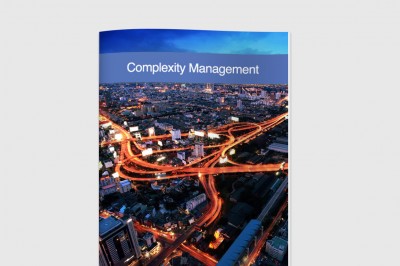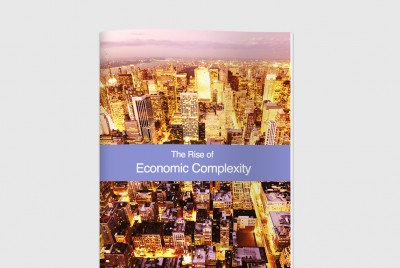Complexity Approach to Environmental Management
Environmental Solutions
Within the course of just a few decades we have transitioned from being a small world on a big planet to being a big world on a small planet, an extraordinary transformation. A switch from making ad hoc interventions into ecosystems, to becoming the primary drivers of change within the biophysical processes of the entire planet. Generating an appropriate response within our economic systems of organization to this profound transformation, will clearly not be a “business as usual” scenario. Our traditional approach to macro-scale environmental management has been exorcised through a top-down centralized model, but this is no longer relevant in an age when industrial activity has become an embedded part and central driver of change within virtually all ecosystems around the planet.
Socio-Ecological Systems
The environment represents the whole ecosystem that a society depends upon for various services such as water, materials, food, and energy. In our analysis of the environment we are really looking at a combination of natural ecosystem and human economy, called a socio-ecological system, which is a model that helps to focus our attention explicitly on the interaction between our engineered environment and the natural environment and how the two function, or fail to function, as an entire system. The nature of socio-ecological systems has changed fundamentally over the course of human history as we have developed new technologies, institutions, and tapped into new energy sources.
The relationship between economy and environment is evolving at a rapid pace and we focus our analysis here on some of the key dimensions that are effecting this change. We look at four key drivers including; firstly environmental degradation as many indicators are revealing significant degradation to ecosystems around the world. Secondly we look at the massive scaling up process to the global economy that is currently underway given increased population growth and globalization. Thirdly we take a look at the political dimension to this dynamic as the industrial age political institution of the nation state is showing limited capability to respond to the current environmental crisis exhibiting what we may call political paralysis. Finally we discuss the role of technology as IT and renewables are reshaping our industrial systems of technology into a more distributed format and offering the potential for major disruption.
Transformation
In our paper we trace a number of different dimensions along which advanced economies will change in the coming decades, as this new environmental context continues to unfold. We look at a number of different business solutions and changes in business models, that will enhance their relevance in this emerging economy of sustainability. Primary among these is the need for businesses to begin natural capital accounting in order to: prove commitment to their customers, add value, maintain relevance and differentiation. This is an inherently complex task that requires businesses to ask difficult questions about their supply chains.
Solutions
The environmental crisis unfolding is before anything else a crisis of management. It is an expression of the limitations to the model through which we manage our ecosystems, a model that fails to properly account for and incorporate the value of ecosystems into economic decision making. Resolving this will require developing a new value system based around natural capital that is capable of measuring and effectively evaluating ecosystems services and the “green infrastructure” that provides them. Building a natural capital economy means the development of user generated platforms for the quantifying and exchanging of this new form of value. Coupled to this businesses will equally need to shift to a circular model, working with customers and other companies to conserve resources through closing loops, delivering solutions as services instead of products in order to reduce consumption and consciously working to build resilience.
Dig Deeper
By clicking on the button below you can directly download our paper that explores these topics and provides deeper analysis to present dimensions of change within our socio-ecological systems.










